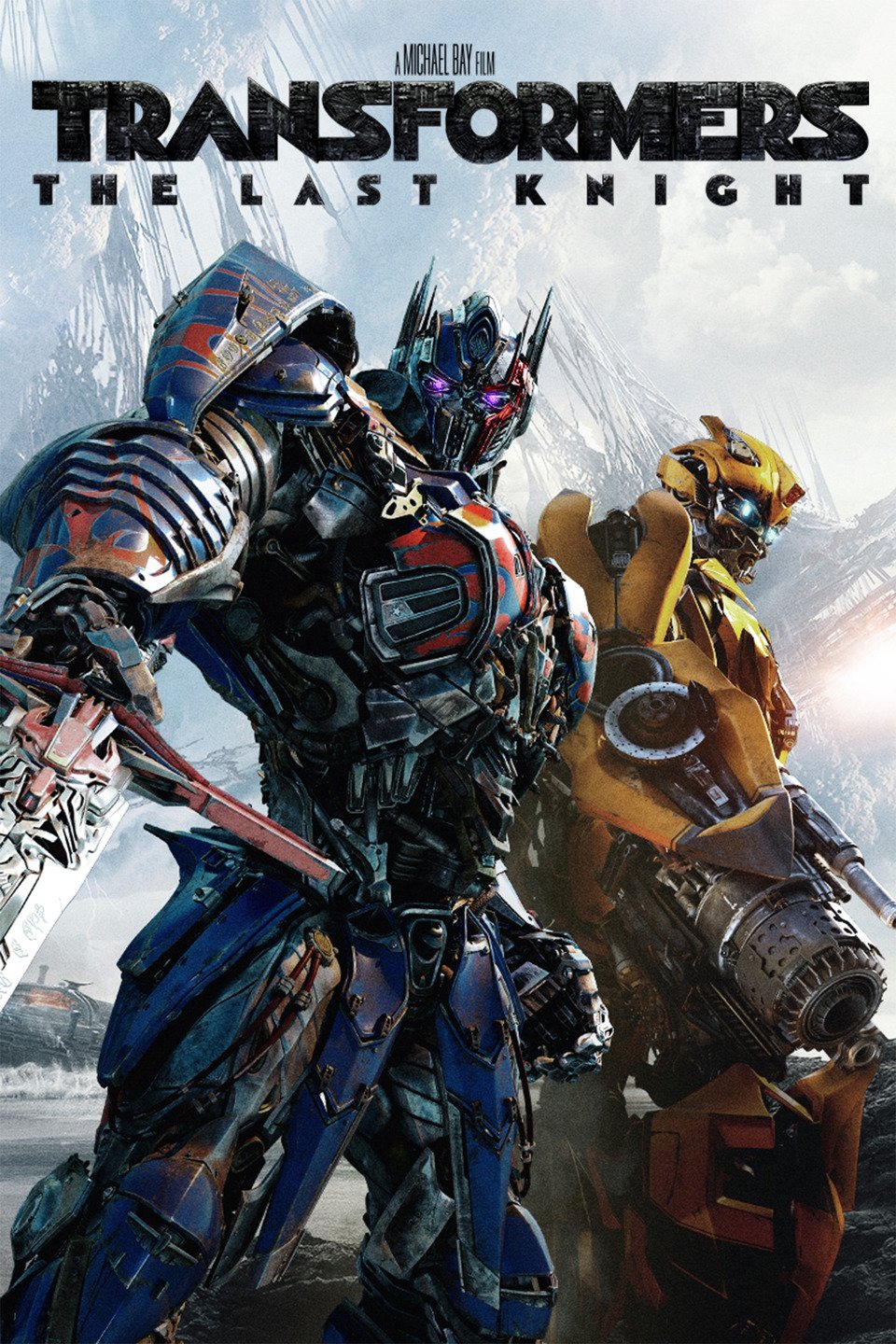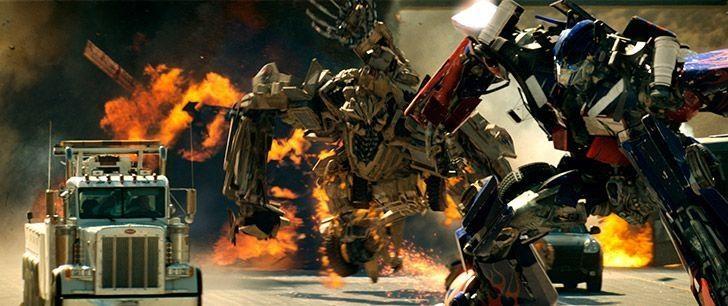
So much less than meets the eye.
In the Summer of 2007, Michael Bay alongside Executive Producer Steven Spielberg unleashed the live action feature film adaptation of toy company Hasbro’s popular action figure and animated property, “Transformers."
Depicting a war raging across eons between two factions of warring machine-like organisms from the planet Cybertron, known as the Autobots and Decepticons, the franchise has seen many an iteration since its original 80s outing, writing around the repackaging of their Japanese “Car Robots” source material and serving as an almost generational touchstone for children’s entertainment media franchises.
For roughly three and a half decades, children have grown up with the “Transformers” franchise and despite the consistencies in lore that have developed and maintained, many of the have grown up with iterations of the franchise that are drastically different from one another.
One would think that such a rich lore and mythology would lend itself well to a potential film franchise. What we ended up with however, was a bit of a mess.

Although criticized for its thin writing, generally poor
acting, and tonal inconsistencies, “Transformers” was never the less a hit when
it was unleashed upon theater going audiences.
A substantial commercial success upon release, the film did
however earn a mildly fair critical reception from reviewers, with several
critics accepting it for the functional yet disposable spectacle it seemed to
be aiming to be while fans critical of the movie at the very least could see
room for improvement now that the stakes of the franchise have been set,
clearing way for richer storytelling possibilities.
Unfortunately, those sensibilities never materialized. It’s
direct sequel opened up to audiences in Summer 2009 to a critical lambasting,
despite overtaking its predecessors box office take substantially, thus
beginning the trend of downward trajectory in critical reception inversely to
the amount of money the franchise began raking in, much more of which was
coming from the burgeoning international movie going market rather than the
North American domestic performance.
Despite the primary complaint of the franchise being that it
somehow manages to outdo its laziness in screenwriting, editing, and direction
from entry to entry in a capacity that is becoming downright farcical, the
franchise continued to maintain a more or less linear film to film continuity,
with each movie being utilized primarily to advertise toys and keep the ending
open for another entry.
The difference between the first four films and
“Transformers: The Last Knight” however, is that the latter came wholly into
being in a post-Avengers Hollywood and Paramount sadly couldn’t leave what
success they had alone.

I could write a dissertation about everything wrong with
“Transformers: The Last Knight,” from the opening frame of the movie’s awkward
transition out of credits into a medieval battle fought by King Arthur with the
help of an alcoholic Merlin using a Cybertronian dragon to fight off human
armies which has nothing to do with the scattershot plot of the actual film, to
the climactic battle that seems to think its incarnations of Autobot leader
Optimus Prime, Decepticon commander Megatron, and silent irritating scout
Bumblebee have developed some sort of actual worthwhile character, to the chaos
in between of disconnected plot threads and aspect ratio inconsistencies that
would be distractingly hilarious if they weren’t running in a feature over two
and a half hours long.
“Transformers: The Last Knight” is a bizarre Lovecraftian
abominable construct of cinema that fails at damn near everything that it
attempts to do on every level while arrogantly pointing the finger at you for
thinking that a $250 million movie should probably not be sensory torture as an
experience.
Critiquing it is a rabbit hole meant to be tackled by far
more talented and better equipped souls than I to diminishing returns, as while
there’s so much wrong with the movie, it’s not flawed in new ways so much as it
finds ways to continuously beef up its own flaws while erasing any charm that
could potentially surface.
For that reason, I aim to focus purely on the mission
statement of “Universal Monstrosities.” Even if I didn’t find Michael Bay’s
arrogance towards storytelling intellectually offensive as both an enthusiast
of storytelling and a lifelong “Transformers” fan, it seems to be general
consensuses that even those that like these movies, acknowledge that they’re as
low as the bar can get in terms of standards in blockbusters.
Let’s instead examine the factors that have potentially led
plans for the “Bayformers” cinematic universe to fizzle out before taking off.
Ever since the very notion of Cinematic Universe’s becoming
feasible in the modern day, studios have turned the race to establish the next
Marvel into a dumping ground of content by way of the same broken method of
selling a franchise with the eventual promise of a good story rather than the
other way around.
The result is a bizarre feature length commercial for future
merchandisable features, inevitably advertising their own standalone sequels,
independent of the potential for some sort of half baked cross over.
Laughable attempts at this include Sony’s defunct “Amazing
Spider-Man,” the previously covered “Dark Universe” featuring “The Mummy 2017”
via Universal, and of course the awkward retrofit of the previously conceived
of as stand alone “Man of Steel” by Warner Bros. executives thanks to “Batman
v. Superman: Dawn of Justice” to create the unofficially titled “DC Extended
Universe,” otherwise known as the cinematic equivalent of a troubled artist
brought to drug rehab by his own hubris.
“Transformers: The Last Knight” is no exception to this level
of creative bankruptcy.
From the moment that the film begins with its…”unique” view
of Earth’s Medieval past, to the focus on the secret society of the Order of
the Witwiccans, the film actively fights to push forth the narrative that Transformers
have been visiting Earth throughout the majority of the planet’s history,
entangling themselves in key events and opening the door to a variety of side
stories and period pieces for the series to blindly perpetuate its own
existence with whatever half baked idea it wants to play with as the central
story of the franchise continues to freefall into full collapse.
Ignoring the strange fixation on the ancient aliens concept
that continuously crops up in these movie, which begins by explicitly stating
that Transformers being on Earth is unusual before gradually retconning their
own history with each new film to the point of barely resembling what they
started out as, the desperation and transparency of these concepts are just unnecessary.
The fate of the upcoming “Bumblebee” spinoff is up in the
air (although it does at least show promise). However, the period piece nature
of it being set in the 80s has yet to play prominently into the selling points
of its marketing.
The primary point of attraction for “Transformers” is the
titular robotic organisms themselves. It’s a franchise with an expansive
interstellar mythology fleshing out the various characterizations of characters
both major and minor across every incarnation.
If the major criticism of these movies is that the human
element and hamfisted efforts to appeal to it drag down characterization for
the Cybertronians and the unique style of action that they can provide, why
keep it centered on Earth?
Entire “Transformers” subfranchises in the vein of “Star Wars”
or “Guardians of the Galaxy” could be born and flourish but that is ultimately
not Paramount’s prerogative. Their goal is to ultimately keep a stale brand
alive and producing by playing it safe, which brings up the final contradiction
of expanding said franchise to begin with.
The fundamental purpose behind developing a cinematic
universe is to expand upon what’s happening on screen with new stories that
make a setting feel alive.
What is the purpose of expanding the story of a product that
damn near prides itself on being the calculated opposite of passable
storytelling?
Paramount could have just continued making these films, ad
infinitum, entry by entry, and the return on investment would have been just
fine because their business doesn’t come from the sort of audience invested in
that level of intricate expansion
It’s a gambit that would’ve had diminishing returns even if
it bore fruits but it would appear that even the passive viewing audience has
begun to move on from the mayhem of Bay’s vision for “Transformers,” as the
film just barely eked out a box office profit, sending signals that this film
series as initially envisioned may very well be deader than disco.

No comments:
Post a Comment